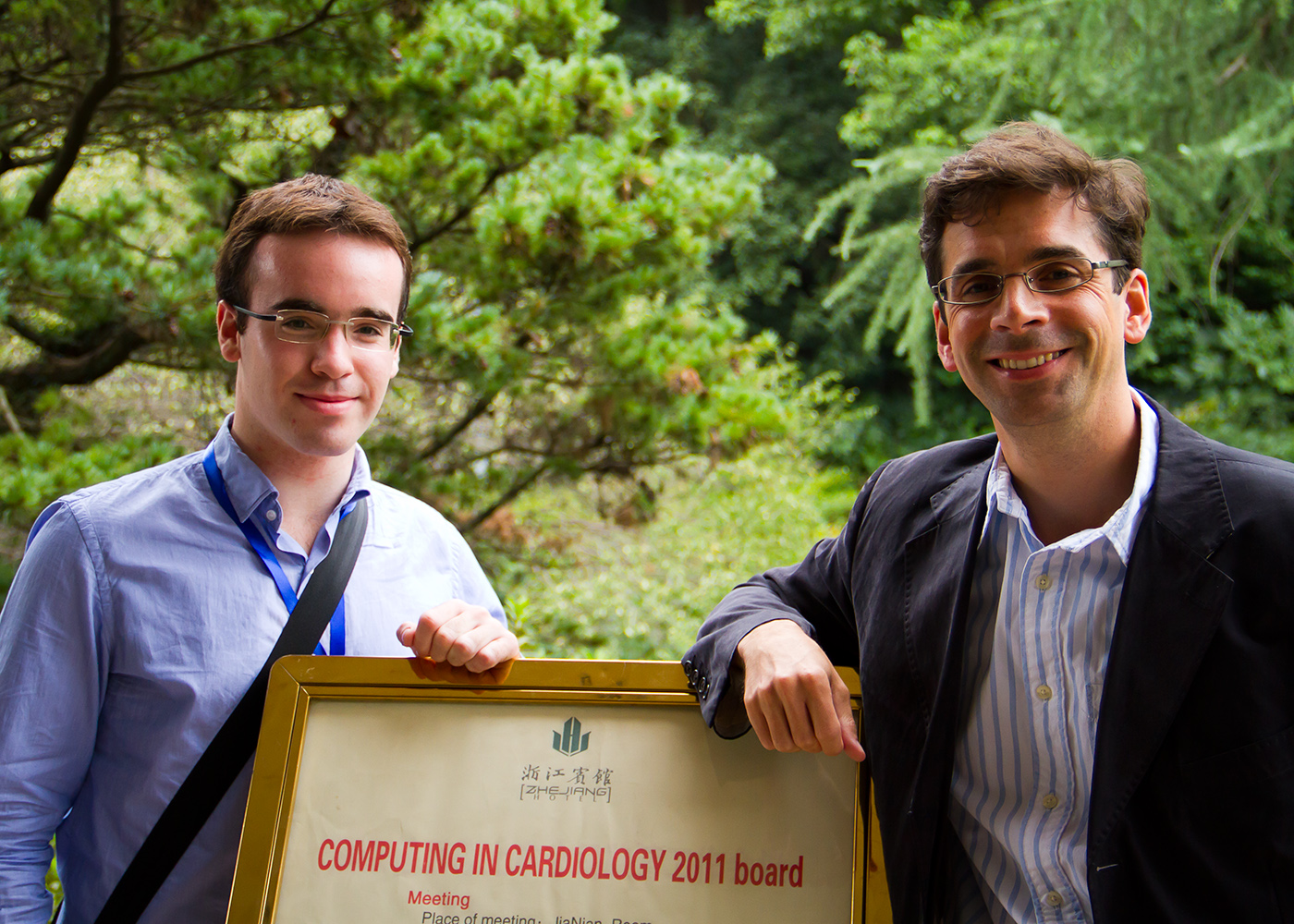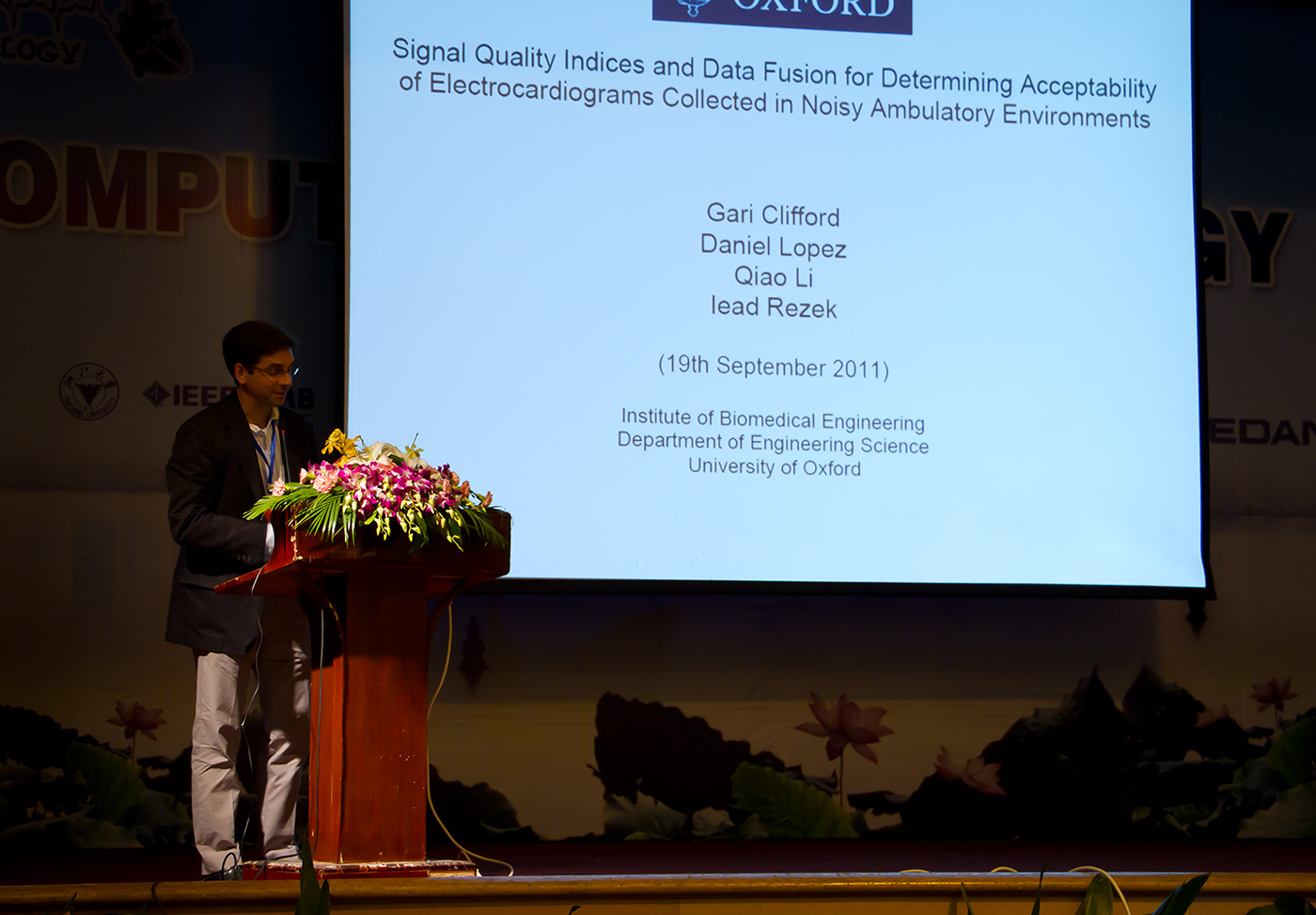Signal Quality Indices and Data Fusion for Determining Acceptability of Electrocardiograms
Date:
Gari Clifford (University of Oxford) and I gave an oral presentation at the Computing in Cardiology (CinC) Conference 2011 in Hangzhou, China, presenting our joint work conducted at the Oxford Institute of Biomedical Engineering (IBME). The talk covered our algorithm for assessing the diagnostic acceptability of electrocardiograms (ECGs) collected in noisy or low-resource ambulatory environments.
The presentation summarized our paper, Signal Quality Indices and Data Fusion for Determining Acceptability of Electrocardiograms, which introduced a set of signal quality indices (SQIs) and a data-fusion framework for automatically classifying ECG recordings as clinically acceptable or unacceptable. The method combined spectral features, higher-order statistical moments, beat-detection agreement metrics, and multi-lead consistency measures across 12-lead ECGs, using machine-learning classifiers such as SVMs and multi-layer perceptrons.
This work formed part of the PhysioNet/Computing in Cardiology Challenge 2011, where our team placed 2nd in Event 1. The challenge aimed to develop lightweight algorithms capable of running in near real-time on mobile devices to provide immediate feedback to lay users acquiring ECGs. Such feedback included detecting poor signal quality, identifying electrode placement issues, and prompting users to repeat the recording when necessary.
Our results demonstrated that automated ECG triage (critical for mobile and low-resource healthcare) can be achieved with high accuracy (up to 95% on challenge test data), and that combining multiple SQIs with classifier fusion substantially improves robustness in noisy environments.


